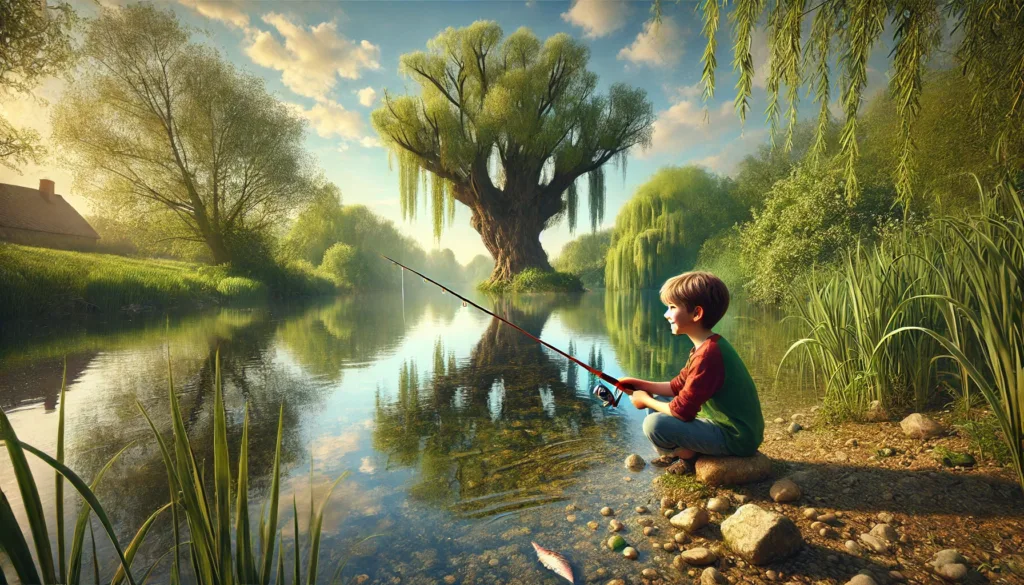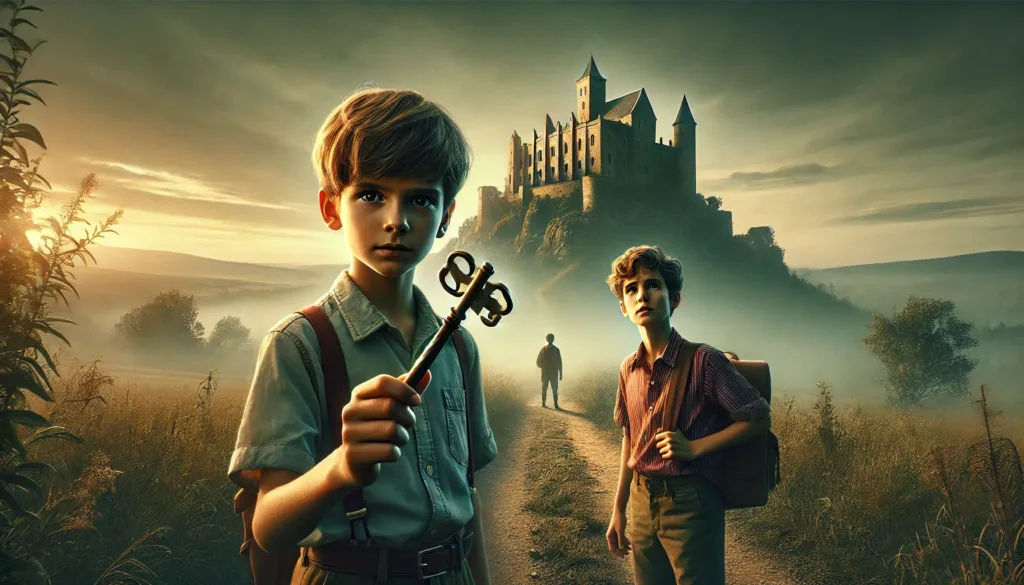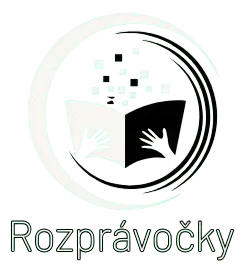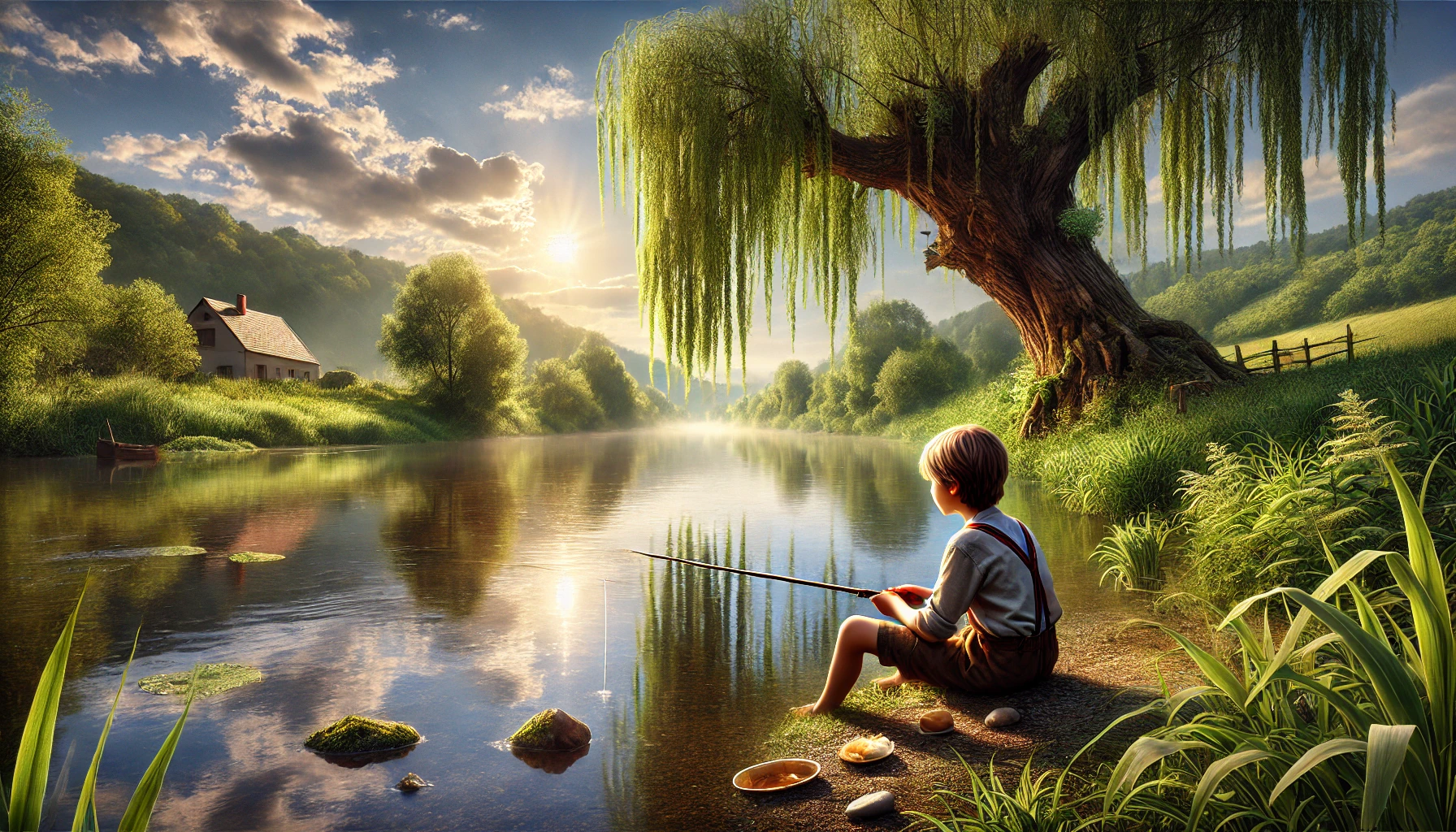5 min.
Tomáš Kováč nebol obyčajný chlapec z malého mestečka pri rieke Váh. Každý v okolí ho poznal ako toho najväčšieho šibala, ktorý dokázal vymyslieť tie najneuveriteľnejšie výhovorky, keď prišiel neskoro do školy. Jeho teta Mária vždy hovorievala, že z neho raz vyrastie buď prezident, alebo pirát, ale určite nič medzi tým.
Jedného slnečného jarného rána sa Tomáš rozhodol, že škola môže počkať. Koniec koncov, ryby v rieke určite potrebovali jeho spoločnosť viac ako pani učiteľka Prísna potrebovala jeho domácu úlohu z matematiky. S udicou v ruke a krajcom chleba vo vrecku sa vybral k svojmu obľúbenému miestu pri starom vŕbovom strome.

„Dnes určite chytím tú obrovskú rybu, o ktorej všetci hovoria,“ povedal si Tomáš a nahodil udicu do vody. Sedel tam celé hodiny, pozorujúc, ako sa jeho splávok pohupuje na vlnkách. Čas plynul a nič sa nedialo. Už-už chcel to vzdať, keď zrazu pocítil silné trhnutie.
„Mám ju!“ vykríkol nadšene. Ale to, čo vytiahol z vody, nebola ryba. Bol to starý, zahrdzavený kľúč. „No, aspoň niečo,“ zamrmlal si pod nos a strčil kľúč do vrecka. Netušil, že práve tento „úlovok“ odštartuje jeho najväčšie dobrodružstvo.
Cestou domov stretol svojho najlepšieho kamaráta Miška, ktorý sa tváril prekvapene. „Ty si dnes nebol v škole?“ spýtal sa. „Práve sme mali tú najnudnejšiu hodinu dejepisu všetkých čias. Pani učiteľka rozprávala o starom hrade, ktorý kedysi stál na kopci nad mestom.“
„Hrad?“ zaujímal sa Tomáš, hravo si pohadzujúc s kľúčom.
„Vraj tam kedysi dávno ukryli poklad,“ pokračoval Miško. „Ale nikto ho nikdy nenašiel, pretože stratili kľúč od tajnej komnaty.“
Tomášovi sa rozžiarili oči. „Miško,“ povedal pomaly, „myslím, že viem, prečo som dnes musel ísť radšej na ryby než do školy.“
A tak sa začalo ich tajné pátranie. Každé popoludnie po škole (tentoraz už Tomáš nevynechával vyučovanie) sa vydávali na prieskum ruín starého hradu. Miško si so sebou vždy priniesol zápisník, do ktorého si značil všetko podozrivé, zatiaľ čo Tomáš vymýšľal čoraz neuveriteľnejšie teórie o tom, kde by mohol byť vchod do tajnej komnaty.

Po týždni hľadania našli za starým kríkom zapadnuté železné dvere. Tomáš vytiahol svoj „rybársky úlovok“ a s trasúcimi sa rukami ho vložil do zámku. Kľúč pasoval! S námahou otvorili ťažké dvere a… našli tam len starú metlu a vedro.
„No,“ povedal Tomáš po chvíli ticha, „aspoň vieme, kde upratovačka pred sto rokmi schovávala svoje náradie.“
Miško sa začal smiať a Tomáš sa k nemu pridal. Možno nenašli poklad, ale zažili spolu nezabudnuteľné dobrodružstvo. A navyše, Tomáš mal konečne dobrý príbeh, ktorý mohol porozprávať v škole na hodine dejepisu.
„Viete, pani učiteľka,“ začal svoj príbeh nasledujúci deň v triede, „minulý týždeň som nebol v škole, pretože som musel ísť na veľmi dôležitý archeologický výskum…“
A tak sa Tomášov „rybársky výlet“ stal legendou školy, hoci nikto presne nevedel, čo z jeho príbehu je pravda a čo nie. Ale to vlastne ani nebolo dôležité. Hlavné bolo, že od toho dňa sa na hodinách dejepisu už nikto nenudil, pretože všetci dúfali, že možno práve dnes Tomáš povie ďalší príbeh o svojich dobrodružstvách.
A teta Mária? Tá len pokrútila hlavou a povedala: „Z toho chlapca bude určite spisovateľ. Alebo možno predsa len ten pirát.“

Tom’s Adventures by the River
5 min.
Tom Kovac wasn’t your ordinary boy from a small town by the Vah River. Everyone around knew him as the biggest rascal who could come up with the most unbelievable excuses when he was late for school. His Aunt Mary always said he’d grow up to be either a president or a pirate, but certainly nothing in between.
One sunny spring morning, Tom decided that school could wait. After all, the fish in the river surely needed his company more than Mrs. Stern needed his math homework. With a fishing rod in his hand and a slice of bread in his pocket, he headed to his favorite spot by the old willow tree.
„Today I’ll definitely catch that huge fish everyone’s talking about,“ Tom said to himself as he cast his line into the water. He sat there for hours, watching his float bob up and down on the ripples. Time passed, and nothing happened. Just when he was about to give up, he felt a strong tug.
„I’ve got it!“ he shouted excitedly. But what he pulled out of the water wasn’t a fish. It was an old, rusty key. „Well, at least it’s something,“ he muttered and stuffed the key into his pocket. Little did he know that this „catch“ would start his biggest adventure yet.
On his way home, he met his best friend Mike, who looked surprised. „You weren’t in school today?“ he asked. „We just had the most boring history lesson ever. Mrs. Stern was talking about the old castle that once stood on the hill above town.“
„Castle?“ Tom asked, casually tossing the key in his hand.
„They say they hid a treasure there long ago,“ Mike continued. „But nobody ever found it because they lost the key to the secret chamber.“
Tom’s eyes lit up. „Mike,“ he said slowly, „I think I know why I had to go fishing today instead of going to school.“
And so began their secret investigation. Every afternoon after school (Tom didn’t skip classes anymore), they would explore the old castle ruins. Mike always brought a notebook where he wrote down anything suspicious, while Tom came up with increasingly unbelievable theories about where the entrance to the secret chamber might be.
After a week of searching, they found an iron door hidden behind an old bush. Tom pulled out his „fishing catch“ and, with trembling hands, inserted it into the lock. The key fit! They struggled to open the heavy door and… found only an old broom and a bucket.
„Well,“ Tom said after a moment of silence, „at least now we know where the janitor hid their cleaning supplies a hundred years ago.“
Mike started laughing, and Tom joined in. Maybe they hadn’t found treasure, but they had shared an unforgettable adventure. Plus, Tom finally had a good story to tell in history class.
„You see, Mrs. Stern,“ he began his story the next day in class, „last week I wasn’t in school because I had to go on a very important archaeological expedition…“
And so Tom’s „fishing trip“ became a school legend, though no one knew exactly what parts of his story were true and what weren’t. But that wasn’t really important. What mattered was that from that day on, nobody was ever bored in history class anymore, because everyone hoped that maybe today Tom would tell another story about his adventures.
And Aunt Mary? She just shook her head and said, „That boy will surely become a writer. Or maybe still a pirate after all.“

